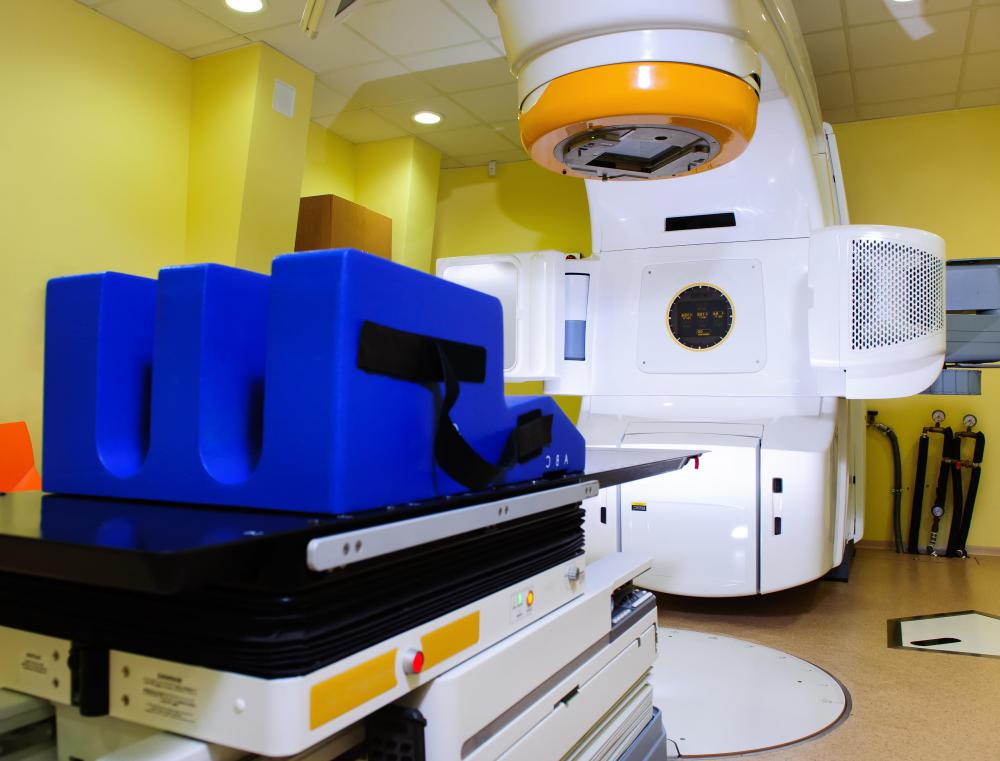At TheHealthBoard, we're committed to delivering accurate, trustworthy information. Our expert-authored content is rigorously fact-checked and sourced from credible authorities. Discover how we uphold the highest standards in providing you with reliable knowledge.
What is Radiation Therapy?
Radiation therapy is a technique which is used to kill cancer cells to prevent a cancer from spreading, shrink a cancer, or kill off a cancer entirely. This treatment is commonly employed in the management of a wide variety of cancers, and there are a number of different types of radiation therapy available. Patients who undergo radiation therapy usually do so under the supervision of a radiologist and an oncologist.
In this type of medical treatment, the patient is exposed to controlled doses of localized radiation which are intended to target the cancerous cells while leaving healthy cells alone. In external radiation, a focused beam is used to deliver the radiation to the area, while internal therapies involve the ingestion or implantation of radioactive agents which will deliver radiation to the inside of the body.

Radiation therapy works by damaging the DNA of cancerous cells so that they cannot continue to multiply. It can be used as a standalone treatment, or as an adjunct treatment along with options such as chemotherapy. When determining which treatments to use, a doctor will usually assess the stage of the cancer, its location, the response of similar cancers in other patients to various therapies, and the patient's own position on therapy and treatment.

Sessions of radiation therapy occur several times over the course of weeks or months. It is necessary to have multiple sessions to deliver small doses to allow the body to recover, and to ensure that all of the cancer cells are killed. Depending on the patient's situation, the therapy may be delivered on an outpatient basis, in which case the patient travels to the hospital for treatment, or on an inpatient basis to a patient who is living in the hospital.

The treatment itself is painless, but it can cause a number of side effects including fatigue, nausea, hair loss, and skin reactions. Radiation can also cause cancer, and in some cases patients experience secondary malignancies as a result of radiation therapy. Combined with other treatments used to manage the cancer, radiation therapy can be grueling for the patient and his or her support team.

Doctors may recommend radiation therapy for a variety of situations. In palliative care, where the cancer is incurable, radiation therapy can be used to manage the size of the cancer to reduce pain and other symptoms associated with the growth. Palliative care may be used when a patient wishes to decline aggressive treatment, or when a patient recognizes that the cancer is incurable, making aggressive treatment unproductive to pursue. This therapy can also be used in the treatment and management of cancerous growths.
AS FEATURED ON:
AS FEATURED ON:


















Discuss this Article
Post your comments